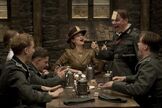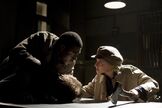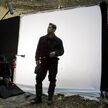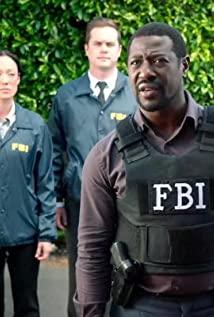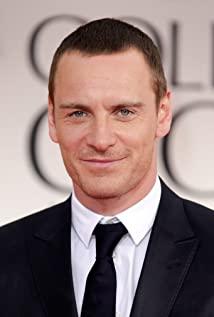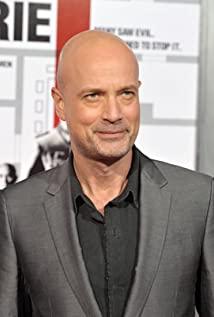Speaking of Quentin, everyone is no stranger to it. From the blockbuster debut of the debut "Falling Water Dog" at the Sundance Film Festival to the brilliance of the second work "Pulp Fiction", a ruffian director in Cannes was born.
And then Quentin shot several ``fashion movies'' one after another
"dangerous relation"
2 "Kill Bill"
And "King Kong Isn't Bad"
Going further and further on the road of similar b-level movies, just when everyone thought Quentin would be like his friend, Rodriguez, who also loves plasma, to go to the dark on this road, Quentin’s "Shameless Bastard" Turned out. I think that since this movie, Quentin has completed the transformation from ruffian to master. If you still call Quentin a ruffian now, you can only say that your understanding of him still stays before "Inglourious Basterds".
Since "Inglourious Basterds", all of Quentin's movies are historical era works, including "The Freed Jiang Ge", "The Hateful Eight", "Once Upon a Time in Hollywood"
"Inglourious Basterds" premiered at the 2009 Cannes Film Festival. Christopher Waltz, the actor of the villain "Hanslanda" in the film, relied on the switching of the four languages of the film, English, French, German, and Italian, and his deep interpretation of the characters. Win the Cannes actor in one fell swoop
The film is divided into three clues, four groups of characters, and five chapters. As a film that focuses on dramatic tension, the film's indoor scheduling, photography and audiovisual language techniques are all extremely exciting. If you first watch the director’s first few works and watch "Inglourious Basterds" and subsequent movies, you may even feel surprised "woc, Quentin still has this ability? ! ''
The dialogue between the two at the beginning of the film and the indoor group play in the middle section, including the indoor group play in which the slave master knocks on the skull played by Xiao Li Zi in "Jiang Ge", both reflect Quentin’s schedule as a master director. ability
Today, this article analyzes why this movie is Quentin’s mature ``transitional work'' from the audiovisual language of the first chapter of "Inglourious Basterds".
At the beginning, with the late soundtrack master Morricone’s "The Green Leaves Of Summer" cast and crew information slowly revealed
Immediately afterwards, the first chapter of the film begins, the vision, the wooden house, the farmer cuts the wood, the daughter dries the bed sheets, accompanied by the shot of the bed sheet being opened, the soundtrack changes to Alice, and the Nazi soldiers appear.
The villain, Hanslanda, the "Jewish Hunter" played by Waltz, appeared. The purpose of his trip was to investigate whether there were Jews hiding in the dairy farm here.
Landa enters the house, still calm and kind, but from the lens of omitting others' heads from below, it can be seen that Landa is defiant, confident and hypocritical.
The camera switches between the farmer and Randa, and shows the soldier holding a gun outside the window, heralding danger and the farmer’s weak position in this conversation
Then the two sat down and the daughters went out. During the period, their language changed to English, because Landa said that he was not proficient in French and the farmer happened to know English.
There are only two people left in the space, but the camera's processing of the front and back of the conversation between the two is different
So far, the information the audience knows is the same as that of Captain Landa, and the two of them continue to chat. At this time, if no new information is added to it, the audience may think this is a useless shot.
At this most appropriate point in time, Quentin let the camera move vertically down after a counter-attack. The audience saw the Jewish family hiding under the floor, and the suspense of the Jewish family was generated from this, and the information difference between the audience and the characters in the film was also the same. Occurs, the audience will also have predictions and expectations
After that, Landa proposed to drink another glass of milk, the picture turned to a panoramic view, and the mood was moderately relaxed.
After getting the milk, Landa began to explain to the farmer why he was called a "Jewish Hunter". During this period, the camera suddenly jumped off the axis (the effect is as shown in the figure below)
This is not used in general conversations, because it will affect the perception, but in some specific scenarios, for example, jumping axis here also means that things have changed, which implies that things will turn in the future.
Talking about Randa's kindness, his expression slowly became serious and sharp. He looked at the farmer with eagle-like eyes, and the scene suddenly became horrified. He asked like an interrogation.
At this time, the farmer was like a lamb to be slaughtered, unable to resist the officer’s interrogation, and his line of defense was completely defeated.
After asking where the Jews are hiding, Landa greeted the soldiers to enter the house, and changed his language back to French (it can be seen that the previous excuse to speak English was to prevent French Jews who might be hiding from understanding, and further demonstrated the coldness and skill of the officer)
The soldiers fired on the floor, and the editing rhythm gradually accelerated. At this moment, the audience's emotions that had been suppressed for more than ten minutes were released at this moment.
The youngest daughter of a Jewish family escaped by chance, the first chapter ends
The beginning of "Shameless Bastard" is so wonderful that I have watched it no less than 15 times. Even if I sometimes don’t have time to revisit the whole story, I will take out the opening and the middle two scenes of this chapter separately. Processing the pinnacle
Finally, here is Quentin himself to illustrate the dramatic tension in his film
This may be the reason why the suspense and drama tension in the first 20 minutes are so well handled!
View more about Inglourious Basterds reviews



